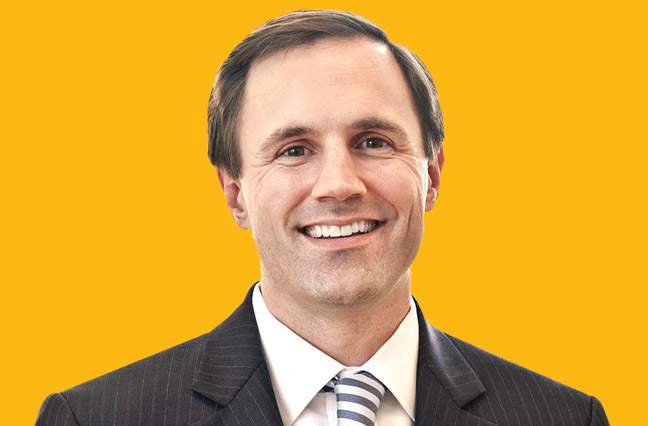
Google Applies Itself

Applied is putting Google tech expertise to work in insurance.
Why does Google invest in larger-scale technology firms? The primary purpose is being able, through the investment, to provide technology to an industry vertical that they care about. Let’s take Lyft, the competitor to Uber. The reason for Google’s investment in Lyft is obviously the core of that app is mapping. They wanted Lyft to utilize their mapping technology. Second, they have the Waymo division, which is focused on self-driving cars. As people look into the future, it’s certainly possible that Lyft wouldn’t be “Bob” pulling up; it would be the self-driving car pulling up. That’s another area of interaction.
For us, you come more specifically to insurance brokerages. Google has great expertise around machine learning and artificial intelligence. Applied is a $400 million company, but it’s still hard at our size to access some of the incredible minds to be able to put that technology to good use. We now have an avenue to be able to do that. To make it real, we had 20 of our top engineers in New York in Google’s office doing machine learning and artificial intelligence boot camp. It’s the same boot camp they put on for their own internal employees. We get to access that because of the CapitalG investment. It’s really great for our company. We think it’s great for brokers.
Very large agencies have a huge book of business, yet rounding out that book of business perfectly is not something any owner or CEO of a large agency would be able to say they’ve done. Machine learning and artificial intelligence can look through that kind of data much more quickly, much more effectively, much more systematically than a person can.
It’s a digital age today. Google is the master at digital marketing. The search engine really controls an enormous amount of flow of traffic around the internet, and that’s relevant to commercial lines and personal lines brokers. People a lot of times go to personal lines around that, selling to a consumer, but I think it’s super relevant in a commercial-lines environment. It’s too early for us really to be able to give specific examples as to what we intend to do.
Relative to access to Google data, the same is true on the flip side. We really didn’t enter this with the thesis that we were going to leverage Google data for the purpose of underwriting or that kind of thing. It’s more on the technology side. We have enormous amounts of data already that are available to us. That really wasn’t the point of the investment or the partnership.
Second, the great thing about Google is it truly is high tech—really great technology and really useful at looking at very large data sets. Based on that simple description, insurance fits that very well—very large data sets and very important questions to answer. They want to put their technology to use in that vertical. They talked to a number of different folks. It’s a great validation of Applied because they can invest in anyone on the tech side.
You saw this with Amazon and Travelers doing their partnership around connected devices and their online storefront. Amazon has to come up with new categories that they’re going to sell products through, and they need something that’s big in order for that to happen.
I think you’ll find much more automation between carriers and brokers around the provision of the product. You’ll also see much more digital connectivity between the insureds and the agencies. You’ll find the providing of the policy documents and the providing of financials and the claims information, all of that, to be much more streamlined. The reality is that we’ll have systems that in essence fill that information out for you.
Today, the insurance industry is compared against other experiences outside of insurance. It’s, “I had a wonderful process to open a bank account yesterday. Why is it so painful for me to get my business owners policy?” That’s the call to arms. Let’s make it better.




